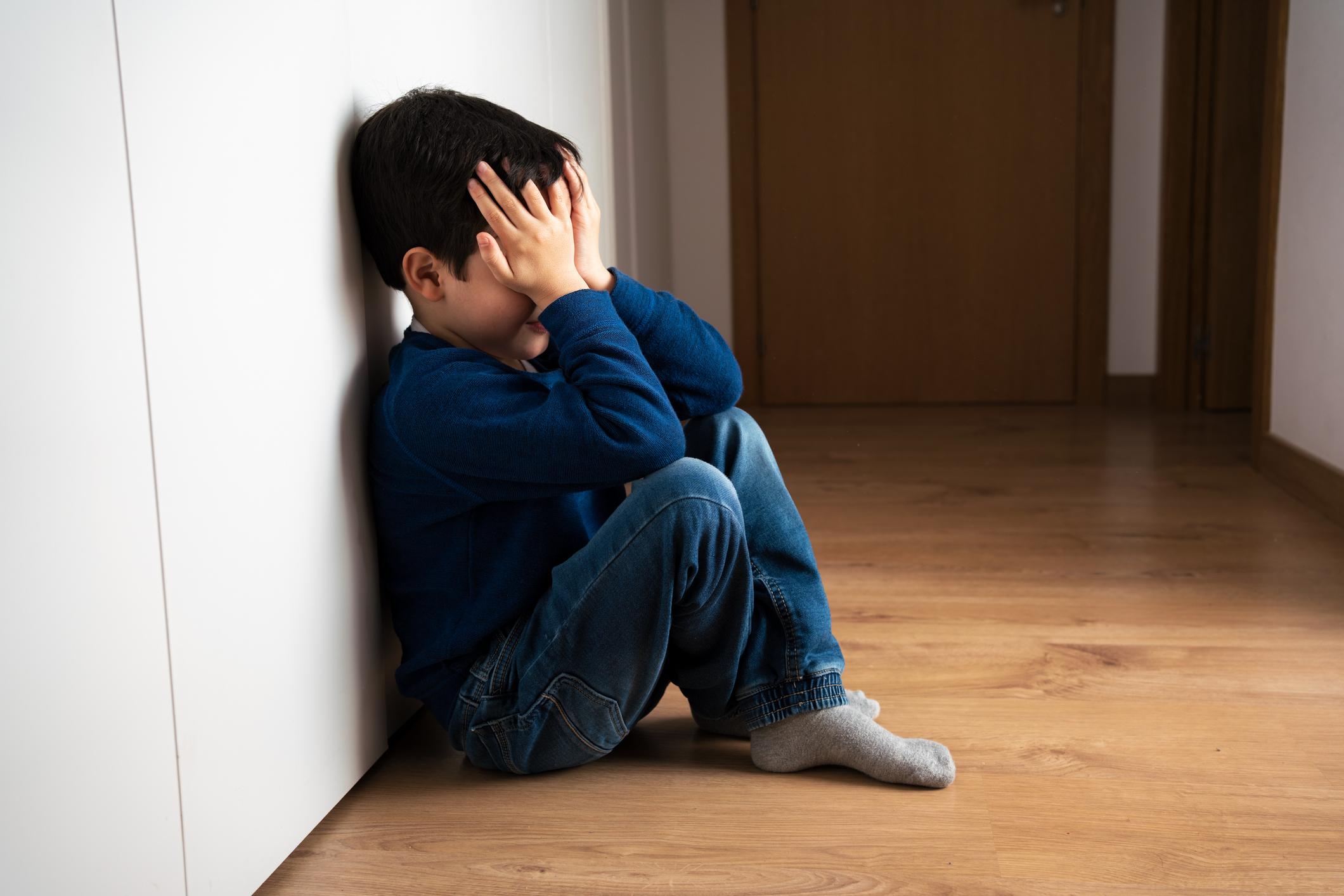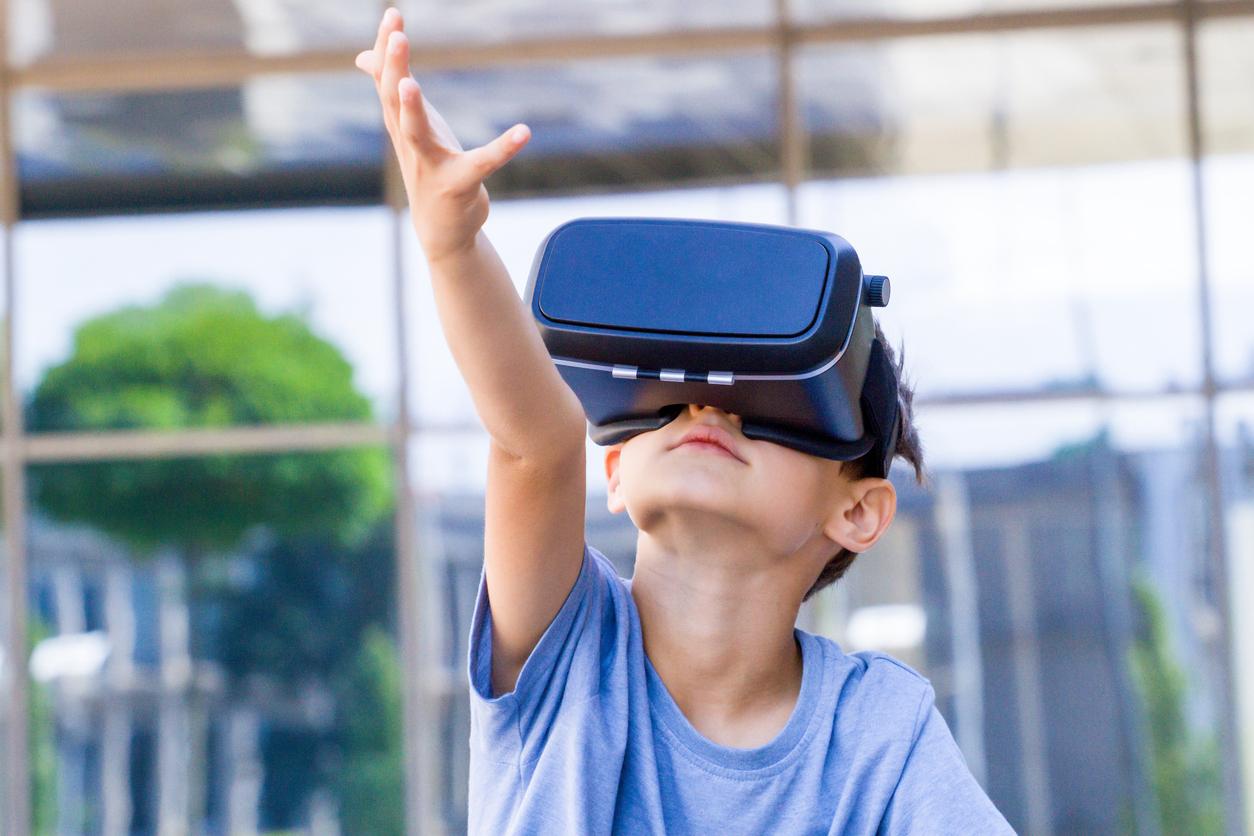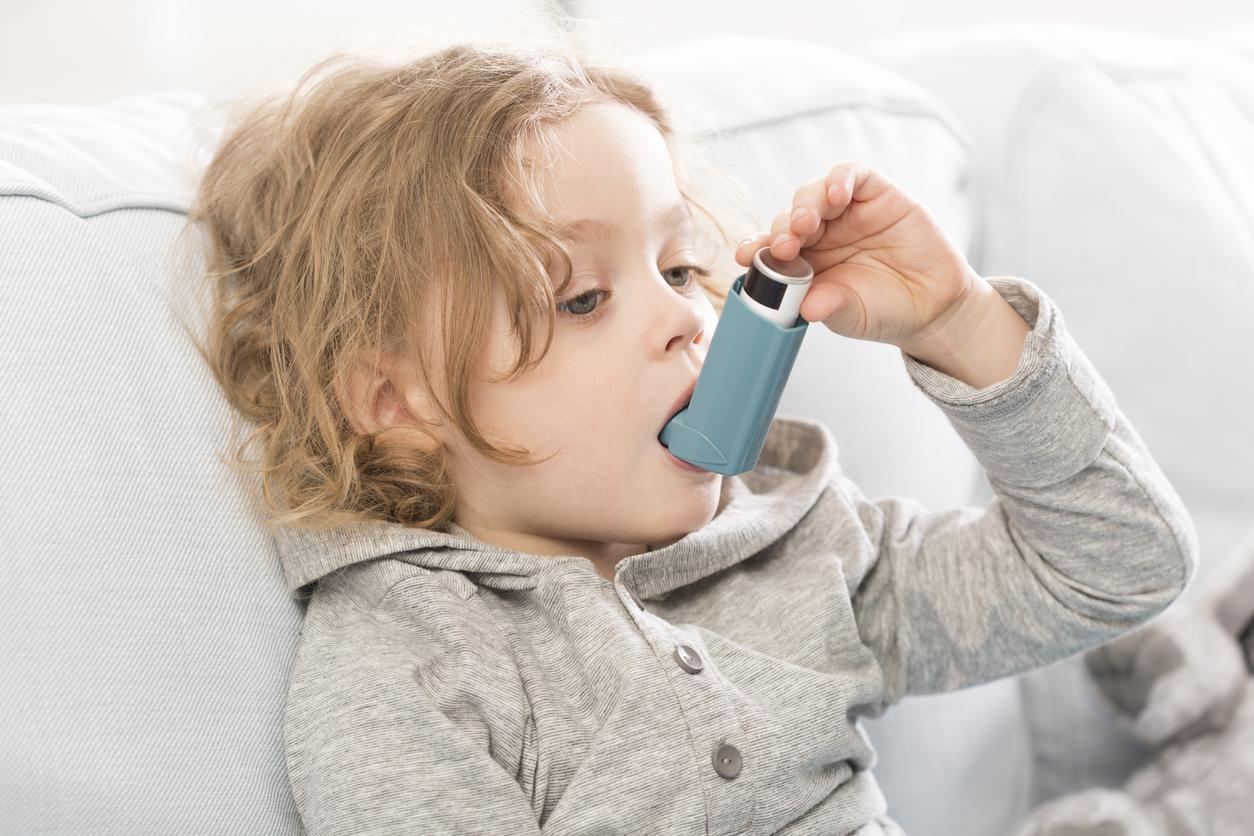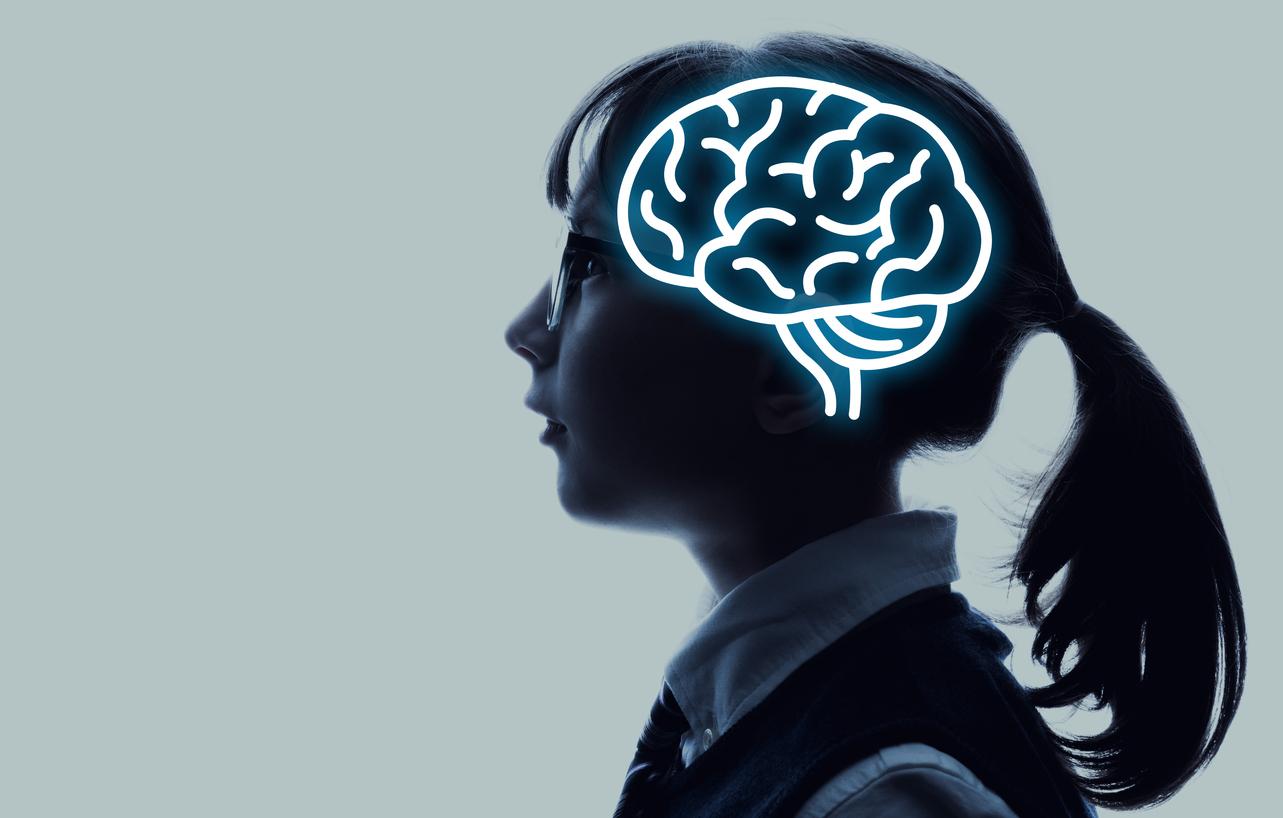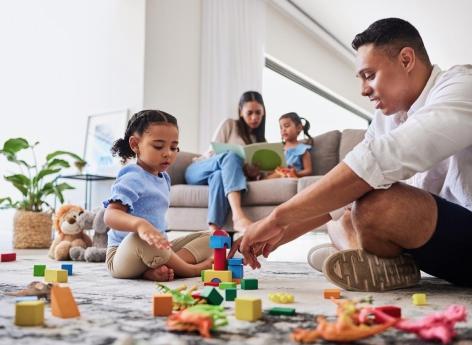On this world day of mobilization against childhood cancers, Anne and Fabrice Donguy tell their fight against the disease of their son, suffering from a brain tumor in the thalamus (second part).
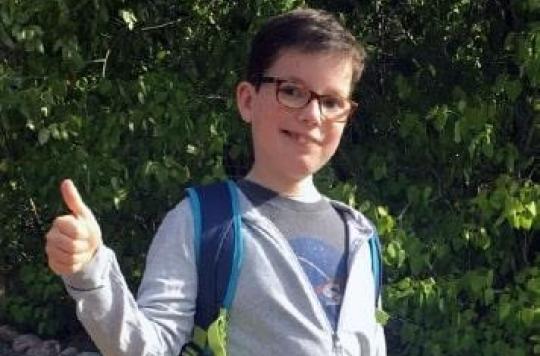
- 500 children die of cancer each year in France.
- Cancer is the leading cause of death by disease in children over 1 year old.
- The number of children diagnosed has never declined.
“We are changing a lot of things in our daily life: food, environment, living environment, we are limiting what constitutes in our eyes any potential source of carcinogenic proliferation. We are adding supplements, repositioned drugs, cannabinoids to the Anatole protocol. We turn to integrative and alternative medicine. We call on unconventional doctors, magnetizers, auriculotherapists… We feel like we are firing on all cylinders. Everything is good to take. At worst, what we do is not nothing but to give us the impression of acting and that does us good.At best, our initiatives have a real influence on the health of our son and can help to improve his condition.
“We have to rely on ourselves”
Quite quickly, in our research, we hear of an experimental treatment, ONC 201, available only in clinical trials in the USA. It is still there that medical research is the most active and the most innovative. We are in contact with two American associations, the Musella Foundation and Cancer Commons, which help us find our way through the jungle of protocols and other clinical trials. They reinforce our idea that this molecule would suit Anatole. In the opinion of the teams in Stockholm and Paris, this treatment is the most promising for this type of tumour. It has given very good results in adults with glioblastoma, an extremely aggressive tumour, and is now offered to children. We talk to our Swedish team about it, we want to know how to get it, they tell us that they are inquiring. Is it taking him too long? As the drug is not available in Europe, doesn’t the team want to give us false hope? Is our son’s tumor already too large and his condition already too advanced? Are there other emergencies in the service, and for more cases? We’ll never know. But the hospital does not respond. That’s when we realize fully the fact that we are alone in the face of the disease, alone in being able to help our child. We have to rely on ourselves. Doctors are goodwill. For them, Anatole is a little patient like the others but, unfortunately, we feel that they have already condemned him.
“A breach that offers a little hope”
In January 2019, Anatole’s tumor is still progressing. It gently tends towards the cerebellum. It’s the size of a lemon. Stopping medication is recommended. We hear the words “palliative care” coming straight from the mouth of our oncologist. We reject them altogether. We decide to go and look for this famous ONC 201 in the USA. We take on the responsibility of making our son a guinea pig. The Swedish and French health systems do not cover trials outside Europe, even if they are promising. So we have to fend for ourselves. We are building our file to check Anatole’s eligibility for the clinical trial. Out of four centers accepting new patients at that time, three turned us down straight away, either because we lived outside the United States, or because Anatole was too weak, or the tumor was too aggressive… Only the MD Anderson Center, in Houston, accept to meet with us to redo a complete evaluation. We don’t ask questions. We rush headlong into this breach which offers us a little hope.
At the beginning of March 2019, we drop everything: our lives, our jobs. Anyway, our life has already been head over heels for nine months. We are setting up a kitty to be able to offset travel costs and the exorbitant cost of care in the USA. We can’t split the family. We all leave together, each parent unable to go through this ordeal without the support of the other, and unable to bring ourselves to leave our eldest alone, our big daughter, so small. We stay united.
“Going through the stages without asking us questions”
The arrival in the USA is tumultuous. In view of the results of the tests carried out in Houston, Anatole cannot integrate the test. There are too many control exams, too heavy for him, they would be fatal to him.
It’s the cold shower. In shock, in desperation, we call for help. Thanks to the Musella foundation and Cancer Commons, in a few days, the pharmaceutical company Oncoceutics agrees to give us the benefit of the drug for compassionate use. We have to go to the Children’s National Medical Center in Washington DC where we will be taken care of by Dr. Kilburn. The hospital will follow us for as long as necessary. We go without further delay to Washington.
For Anatole to have access to care and begin treatment, a financial guarantee of more than 100,000 dollars is requested from us by the hospital. Thanks to the kitty, the generosity of hundreds of strangers and the support of our loved ones, we can pay without hesitation. It’s a huge relief. Subsequently, the related costs are minimized thanks to the help of extraordinary people who pay for our plane tickets or our accommodation, who welcome us into their homes or who simply make themselves available to us. We are grateful to all those people who support us so that we do not exhaust ourselves with daily life and material aspects, so that we reserve our energy for Anatole, so that we can go through the stages, one after the other without asking ourselves of questions. In this very distressing period, when our son’s health is deteriorating again and again, we are in shock thanks to this boundless generosity, this solidarity offered to us without conditions. We accept this extremely stimulating and beneficial benevolence, we feed on it, it prevents us from giving in to despair.
“The tumor is regressing … the emotion overwhelms us”
Anatole begins his treatment on April 4, 2019. We stay another month in the USA, the time to carry out the first tests. The tumor is not completely stable but we obtain the authorization to return to Sweden at the beginning of May. Anatole is tired but happy to be back home. The first MRI scans in May and June show tumor stability. In July, the MRI shows a marked improvement. The tumor regresses. When reading the image, the emotion overwhelms us. It is a strange and overwhelming vertigo, when all suddenly we realize that the treatment is working. The MRIs are then followed every two months and a reduction in the tumor is still observed. After a year of treatment, she regressed by more than 60%. In the summer of 2020, more than two years later, she is smaller than when first diagnosed and the size of a walnut.
Anatole comes back to life little by little. He is still weak on the left side, frozen on the lower face, but he goes to school, he learns, he plays, he laughs. He lives. He’s come a long way. It’s incredible, jubilant, it’s fantastic. And so scary. Deep within us, we want to hope that we don’t have to see the curve of tumor progression reverse. Fear will never let us go again. But today, Anatole is fine. We can start breathing again without having to act urgently or vaguely, without stopping in perpetual tension.
We are now entering a strange phase. Anatole is not cured. Is he in remission? The word sounds too good to be true, almost surreal. However, it is indeed that, the symptoms of the disease are attenuated, its vitality is good. We try not to project ourselves too much into a tumor-free world, we’re not that naive. But we want to believe in a future for our son. And for that, we must now move on to another test: integrating the world of disability.
“Our itinerary is punctuated with small miracles”
We carry within us so many hopes for Anatole as so many new challenges: improving his motor skills and seeing him walk properly again, improving his eyesight and seeing him read better, improving his resistance to fatigue and seeing him learn better… His life has been put to the test and we would like it to find a little more simplicity, flexibility if it cannot become “like before”. And we parents, roll up our sleeves again to continue what our son started: to progress despite the illness, despite the difficulties and obstacles of everyday life, to adapt to all situations, to show a certain abnegation to face life as it is, without ever balk. It is for us to accompany him as best as possible in this extraordinary journey of life, by following his example.
We still have no idea where this journey is taking us. We live next to a child who today, if we are to believe the statistics, should no longer be with us. So yes, Anatole is still physically marked but we want to continue to move forward with confidence, holding his hand, as we have done for more than two years. Our route was punctuated with little miracles, so many little white pebbles that allowed us not to get lost along the way.
“Apologize for not experiencing the worst”
We are aware of how lucky we are, our child is alive, and he himself is present in his own life. We have worked with enough families to know that we are one of the “lucky ones”. Unfortunately, we cried, with heavy hearts, bruised souls, the departure of far too many children, broke far too quickly. We try not to live with survivor’s guilt, this feeling that we have to apologize for not going through the worst. Why is Anatole alive when so many others have died of cancer? We are not better parents, we do not love our child more or better. We keep in mind that everything could have been different if the cancer had been more aggressive. We are lucky. It’s easy to accept this chance of life when you’re on the right side. And it would also be so easy to forget this ordeal, to move on today.
But we believe we have a responsibility, a role to play. That of informing, helping, supporting as best we can the families of children faced with this diagnosis. We want to relay the information, make things happen, make the pain of the families affected heard. Illness stupefies, undermines, weakens, isolates, destroys. We want to be able to be a shoulder to lean on, or cry on. We’ve been there, we know that sometimes there are no words, sometimes no cure either.
During this trip to the country of sick children alongside our son, we opened our eyes. We realized how much being in good health seems to be an accepted fact today and how much illness, especially when it concerns children, still remains taboo. Pediatric cancer is not rare, it is to talk about it that it is rare. We want to continue to talk about our journey which began so abruptly on May 9, 2018 and which is not limited to that day, to this simple diagnosis. The story of our son has become the story of our life. A never-ending story, but certainly not without a future.”
Website: allwithanatole.com
To read more testimonials, you can buy the book Regards (published by Feathers of Ocris). IProfits from the sale of the book will be donated in full to the Federation Growing Up Without Cancer for research in the field of pediatric cancers.
.










